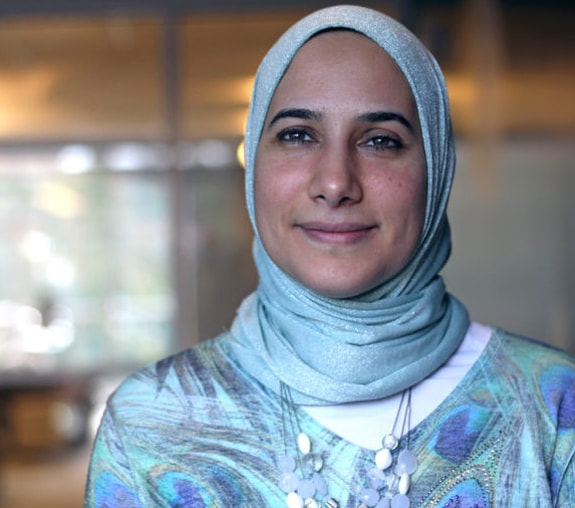
Dr. Hadia Mubarak is an Assistant Professor of Religion at Queens University of Charlotte. She previously taught Religious Studies at Guilford College and served as a Research Fellow at New York University-Abu Dhabi (NYUAD), where she wrote her monograph, Rebellious Wives, Neglectful Husbands: Controversies in Modern Quranic Commentaries. Mubarak completed her Ph.D. in Islamic Studies from Georgetown University, where she specialized in modern and classical Qurʾanic exegesis, Islamic feminism, and gender reform in the modern Muslim world.
She currently serves as a scholar-in-residence with the Muslim Community Center of Charlotte and a scholar with the Institute for Social Policy and Understanding. Dr. Mubarak is an ALIM alum (Class of 1999 & 2000).
Mubarak’s publications include, among others, “Violent, Oppressed and Un-American: Muslim Women in the American Imagination” in The Personal is Political (Eds. Christine Davis and Jon Crane. Brill, forthcoming); “Change Through Continuity: A Case Study of Q. 4:34 in Ibn ʿĀshūr’s Al-Taḥrīr wa-l-Tanwīr” (Journal of Qurʾanic Studies 20.1 February 2018); “Breaking the Interpretive Monopoly: A Re-Examination of Verse 4:34” (Hawwa 2.3); and “Crossroads,” I Speak For Myself: American Women on Being Muslim (White Cloud Press, 2011). Her upcoming book publication explores significant shifts in modern Qurʾanic commentaries on the subject of women against the backdrop of broader historical, intellectual and political developments in the early twentieth century.
You can find more of her work at https://guilford.academia.edu/HadiaMubarak
She currently serves as a scholar-in-residence with the Muslim Community Center of Charlotte and a scholar with the Institute for Social Policy and Understanding. Dr. Mubarak is an ALIM alum (Class of 1999 & 2000).
Mubarak’s publications include, among others, “Violent, Oppressed and Un-American: Muslim Women in the American Imagination” in The Personal is Political (Eds. Christine Davis and Jon Crane. Brill, forthcoming); “Change Through Continuity: A Case Study of Q. 4:34 in Ibn ʿĀshūr’s Al-Taḥrīr wa-l-Tanwīr” (Journal of Qurʾanic Studies 20.1 February 2018); “Breaking the Interpretive Monopoly: A Re-Examination of Verse 4:34” (Hawwa 2.3); and “Crossroads,” I Speak For Myself: American Women on Being Muslim (White Cloud Press, 2011). Her upcoming book publication explores significant shifts in modern Qurʾanic commentaries on the subject of women against the backdrop of broader historical, intellectual and political developments in the early twentieth century.
You can find more of her work at https://guilford.academia.edu/HadiaMubarak
